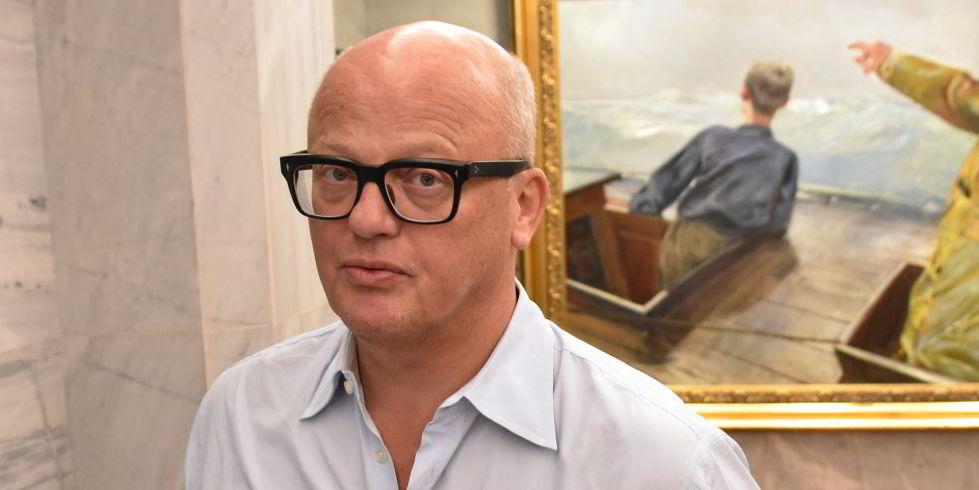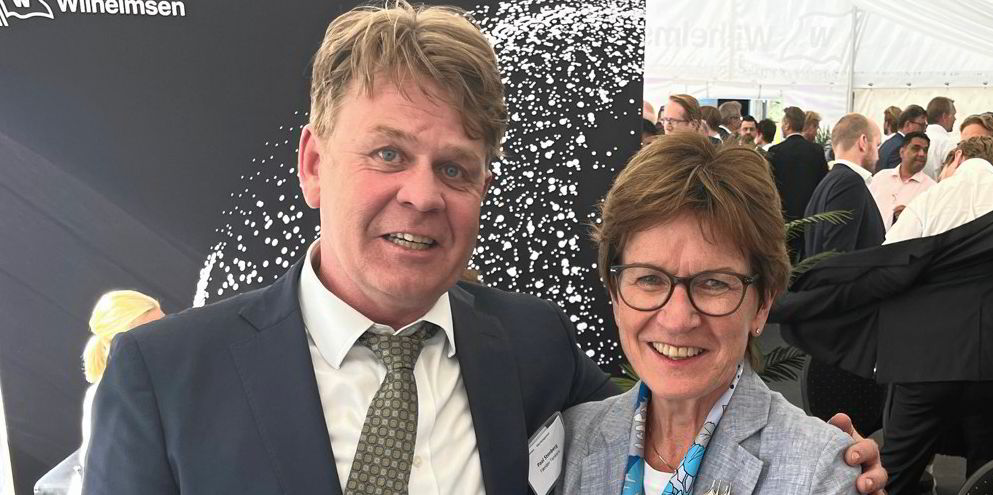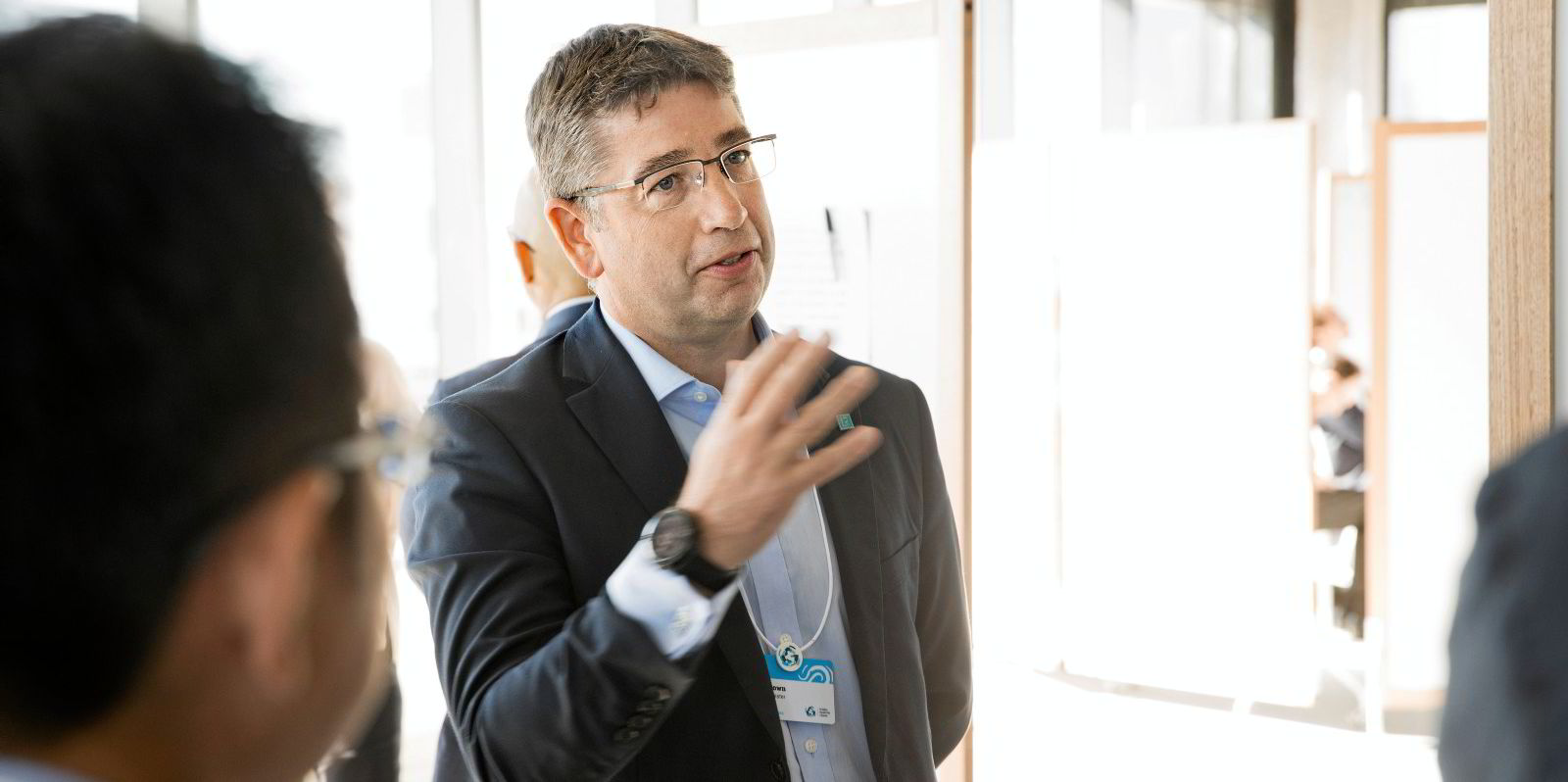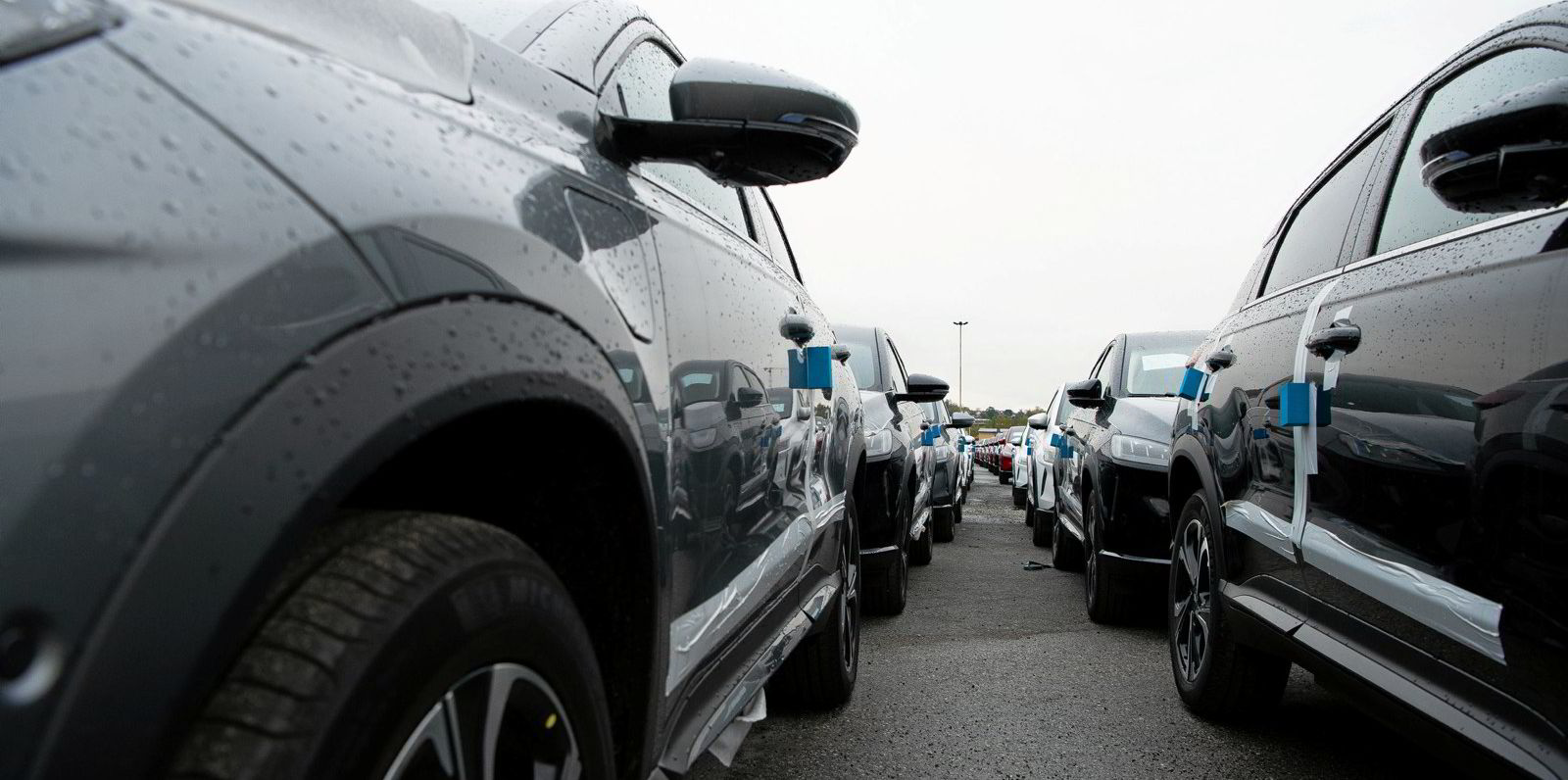Norway’s Faerder Tankers is putting its money on ammonia propulsion and plans to place two series orders this summer at Chinese yards, for tankers and car carriers.
The Notteroy-based owner has completed design plans for an ammonia-diesel dual-fuel car carrier of 7,500 ceu and an LR2 product tanker.
Captain Paal Stenberg, joint principal of Faerder, with Turid Moe Sorensen, aired the plans at a Wilhelmsen Ship Management decarbonisation seminar during Nor-Shipping.
Stenberg told TradeWinds both orders will be for two ships with two options, and the company does not know which order will come first. But one project is expected to get pen on paper ahead of the summer holiday slowdown and the other soon after it.
The company is holding talks with a single Chinese yard for the car carrier and two yards for the tankers.
Stenberg told TradeWinds the large car carriers are comparable with even larger-capacity ships as they have reduced vehicle cargo space because of the extra-large fuel tanks required for ammonia.
Like compatriot owner Hoegh Autoliners, Faerder is convinced of the advantages of ammonia as a fuel for a decarbonised future. And with a background in technical management, he is not hesitant about the risks of the highly toxic fuel.
“I would rather be in an engine room with an ammonia leak than in one with an LNG leak on hot metal,” he said.
He also believes that existing technical safeguards and procedures in the handling of other dangerous fuels, also as used in the handling of ammonia as cargo, will be applicable in ships using ammonia as fuel.
Stenberg thinks the ammonia-powered car carriers in particular represent a step forward for China’s shipbuilding technology.

“For the first time, Chinese yards are technically ahead of [South] Korea,” he told TradeWinds.
Comparable prices are not available to cite for ammonia-powered large vessels.
The only other such car carriers on order, part of a Hoegh Autoliners series of 9,100-ceu ships from China Merchants Heavy Industry, are reported to carry a $97.5m price tag.
A conventionally fuelled 7,500-ceu series of six ships ordered last year by Bank of Communications Financial Leasing at Fujian Mawei Shipbuilding was priced at a reported $86m per vessel, according to VesselsValue.
Conventional LR2 tankers on order from Chinese yards have recently been ordered at around $62m by Greece’s Dynacom Tankers and Oslo-based TRF Ship Management.
Although Faerder’s principals have long experience in the financial and technical management sides of shipowning, the company has only briefly owned ships under construction. A contracted quartet of suezmax crude carriers from South Korea’s Daehan Shipbuilding were resold to Angelicoussis-controlled Maran Tankers in 2018 at a reported premium of $1.5m per ship.
Stenberg and Sorensen are both veterans of Nordic American Tankers (NAT) and left following a bitterly contested employment lawsuit against NAT and its chairman Herbjorn Hansson that concluded in 2019, with a $2m win for Sorensen. Sorensen was the former chief financial officer at NAT and Stenberg its technical director.





